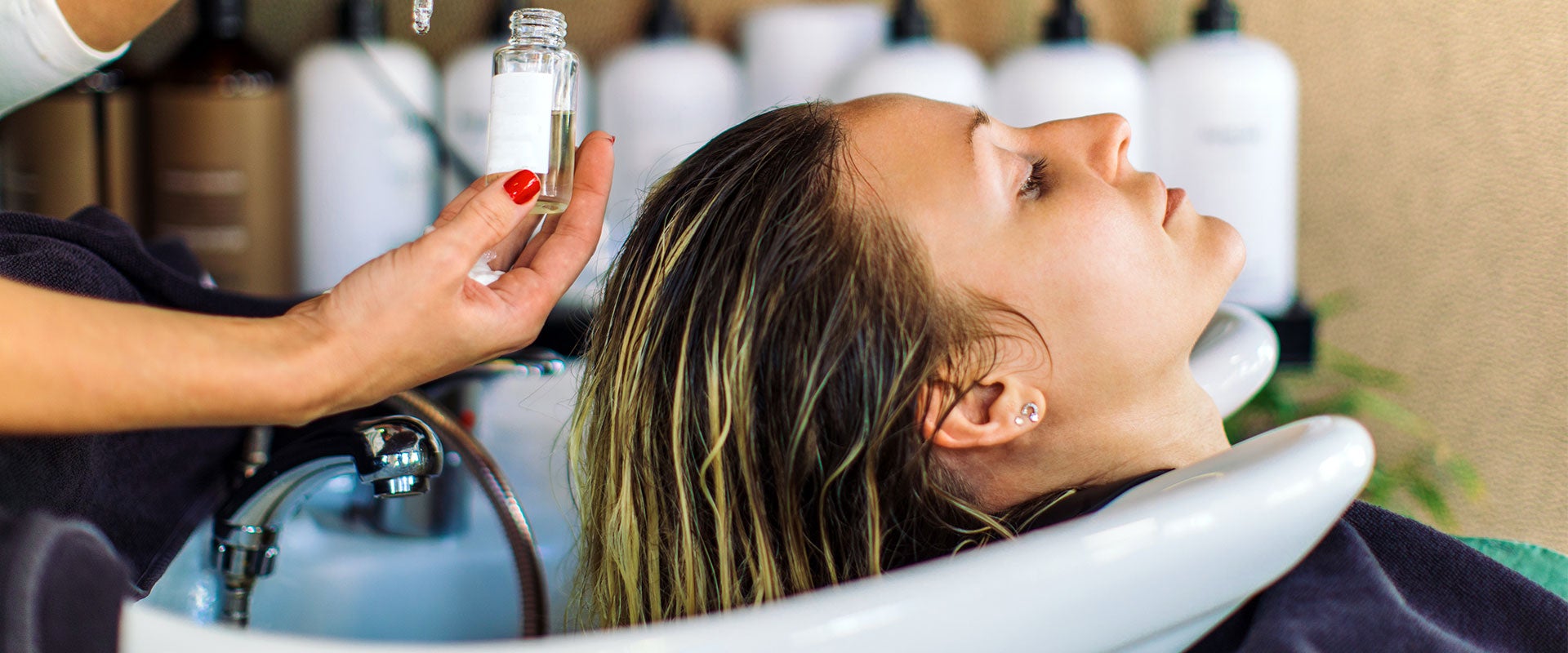
Skincare is continuing its transformation into a scientifically driven landscape of sophisticated ingredients and formulas. Now it’s haircare’s turn.
Gone are the days when haircare options ran the gamut all the way from A (shampoo) to B (conditioner). Today’s haircare market is one of research and evidence-based claims. Consumers are checking labels and evaluating the appearance of their hair and scalp in the context of their whole health. And they’re making it clear that efficacy is the name of the game going forward.
The skinification of hair
Brands are responding to this demand with hair treatments ordinarily associated with skincare — a trend known as “skinification.” Skincare must-haves like antioxidants, vitamins, botanical extracts and minerals are making their way into haircare products. The same is true for ingredients like alpha hydroxy acids and collagen peptides, which help fight damage, and ceramides, which create a barrier to lock in moisture.
It’s more than just the hair. The scalp hosts a microbiome of bacteria that work together to keep it healthy. When this microbiome is thrown off balance, it can cause dandruff, irritation and even hair loss. To address issues like these, many consumers are looking to solutions that target the scalp specifically (see Figure 1).
Increasingly, products found in skincare have an analogue in hair and scalp care. Tools like steamers and exfoliation brushes can be found in both categories. So can formulas like serums, exfoliants and masks (see Figure 2).
Services are also crossing over from skin to hair. Scalp facials (which deep clean the scalp to promote healthier hair growth) and microdermabrasion (a minimally abrasive treatment to produce smoother skin and better circulation) are gaining popularity. Spa patrons can even avail themselves of a chemical peel to exfoliate the scalp.
Function on top of form
Skinification reflects a key change in consumer expectations. Haircare used to be about just washing hair and leaving it looking good. Now, consumers want more functionality from their haircare products. Often that means a multipurpose product like ModaModa’s hair-darkening shampoo or Biolage’s All-In-One Shampoo Scrub, which soothes eczema as it cleans and exfoliates. It can also mean products that target other significant issues (see Figure 3), which has led to the emergence of products like Vegamour’s plant-based GRO Hair Serum for thinning hair and Jason Dandruff Relief, a shampoo with salicylic acid.
The desire for haircare products to deliver greater functionality is playing out against a backdrop of cultural shifts around health and wellness. People are more willing to talk about the medical issues that can impact beauty. There’s also a growing emphasis on treating problems holistically rather than as a series of different symptoms. This is the principle behind products like Derma Zen’s serum, which calms seborrheic dermatitis and psoriasis by removing the fungus that causes it without harming the scalp microbiome.
The long and short of it
The hair care industry is evolving in similar ways as the skin care segment, creating an opportunity to meet new consumer demands through innovation. Brands must focus on ingredients and creating products with more functional benefits to win in this space. First movers will be those that can identify skin products or trends that haven’t made the jump to haircare yet. Which brands will lead the way and gain momentum in this market?
09302022140919






